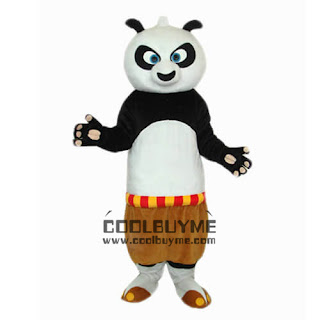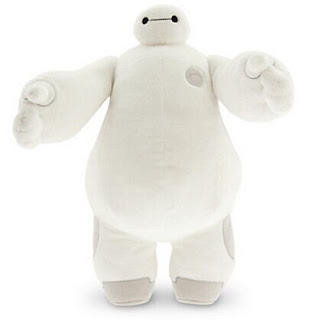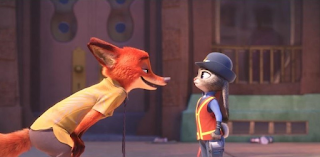‘Kung Fu Panda 3′ Is A Merely Good Entry In A Great Franchise
While visually gorgeous and generally entertaining, this third installment of the DreamWorks Animation DWA -4.00% franchise is a comedown from the first two superb entries.
The Box Office:
Kung Fu Panda 3 has the distinction of basically being the biggest movie ever to open domestically in the week of January. It was originally slotted for December 23rd of last year before being first shifted to March 18th of this year and then being bounced up to January 29th. The current release date is timed to the Chinese New Year. Said holiday falls on February 8th, and of course the best time to open a movie is the weekend before a holiday, since the presumption is that the holiday bump will lessen the second weekend drop.
The film is indeed opening day-and-date with China and a handful of other territories (Russia, South Korea, etc.) before opening over the rest of the world in early March. So the would-be box office narrative for this one won’t be written until long after its domestic debut. That’s tended to be a problem for DreamWorks. Be it Madagascar, Kung Fu Panda 2, or How to Train Your Dragon 2, DWA has had an issue where their domestic opening weekend has been blasted as unduly soft, to actual “their stock gets dinged” consequences, only to have said films become monster hits worldwide long after most of us have stopped paying attention.
Both Kung Fu Panda 2 and How To Train Your Dragon 2 were written off as domestic disappointments after earning well below the domestic totals of their predecessors only to handily top $600 million+ worldwide. I honestly don’t know to what extent audiences are still jazzing for another Kung Fu Panda movie over four years after the last one and with 79 episodes of Kung Fu Panda: Legends of Awesomeness running from 2011 to 2014, nor do I know how the January debut strategy will play out. But I do know that, especially considering this $140 million sequel is a Chinese co-production (DWA gets 40% of the Chinese box office instead of 25%, and there is basically a separately animated version specifically for China) and that it plays in much of the world six weeks after it opens in America, I’d advise all of us not to pull the fire alarm if this one doesn’t quite reach the $60m Fri-Sun/$48m Fri-Sun heights of its predecessors on its domestic debut.
The Review:
It may read as an insult for me to compare Kung Fu Panda 3 to X-Men: The Last Stand orSpider-Man 3. But both respective comic book sequels had the misfortune of being merely okay installments that were proceeded by two critically-acclaimed predecessors. They have their issues (Spider-Man 3 is aggressively campy, X-Men 3 focuses on Wolverine instead of Cyclops), but taken on their own they were relatively enjoyable, occasionally ambitious popcorn entertainments. The biggest problem with Kung Fu Panda 3 is that Kung Fu Panda and Kung Fu Panda 2 were so obscenely good that this merely okay installment feels like a huge let down.
Some plot: The film picks up on Kung Fu Panda 2‘s cliffhanger, with the discovery that Po’s father (Bryan Cranston) survived the massacre of the panda clans and is now aware that his son (Jack Black) survived as well. Said reunion comes at an awkward time, with Master Shifu (Dustin Hoffman, once again the vocal MVP of this franchise) announcing his retirement from teaching and anointing Po as the new instructor of the Furious Five. But when the evil Kai (J.K. Simmons) escapes from the underworld and begins defeating various kung fu masters, Po discovers that only a kung fu warrior who is a master of chi can defeat this threat. Can Po embrace his newfound panda family and master the required skills necessary to defeat this new villain?
The film is a visual marvel, with DreamWorks once again proving that they are the absolute best when it comes to using 3D in animation to enhance their visual storytelling. It’s worth the price of 3D admission for the imagery alone. And with all of the talk about how various comic book movies and television shows are finally embracing the fantastical elements of their source material, it should be noted that Kung Fu Panda 3 is a movie that, with little hand-holding, begins with a blow-out fight between two warriors in the afterlife. The opening sequence is a corker, but it also highlights the film’s core weakness, which is that its villain is ill-defined and its arc will be merely a variation on what we’ve seen before.
The first two films had wonderfully fleshed out and three-dimensional villains. Ian McShane’s would-be Anakin Skywalker and his emotional beef with Dustin Hoffman’s would-be Obi Wan Kenobi added real oomph to the otherwise conventional “fish out of water becomes the proverbial chosen one” narrative. And Kung Fu Panda 2 basically beat We Need To Talk About Kevin to the punch, painfully humanizing a tormented peacock (Gary Oldman) whose parents were forced to cast him away after he committed an act of genocide. J.K. Simmons is fine as the ancient evil spirit who escapes back into the world and begins collecting the “chi” (souls) of the remaining kung fu masters, but he is barely fleshed out and comes off as a glorified villain of the week.
And said villain’s “slowly making his way to Po and his friends so Po better get ready” ticking clock scenario is basically a retread of the first film. It is clear that returning Jennifer Nelson Yuh and new co-director Alessandro Carloni, along with returning screenwriters Jonathan Aibel and Glenn Berger, have attempted to craft a lighter, less violent, and less psychologically nuanced picture, but the end result is one that retreads the general narrative of the first film (Po must get prepared before a rampaging villain arrives in his neck of the woods) while basically repeating Po’s emotional journey from the second film (Po’s attempt to master chi is an inferior variation on his quest for inner peace in the second film).
While Po’s search for inner peace had a narrative through line and satisfying conclusion (it was a natural byproduct of learning about his past and coming to terms with his tragic origins), this time around Chi is basically tantamount to Po learning new supernatural fighting skills. And what felt like a gut punch at the conclusion of the second film (Po’s biological father is alive) is played almost entirely for laughs. The notion of Po’s dad coming back to claim him should be heartbreaking due to our investment in his relationship with adapted father Ping (national treasure James Hong). But Ping’s displeasure with the possibility of losing his adopted son are played almost entirely for comic relief.




评论
发表评论